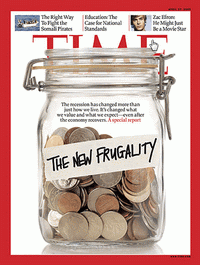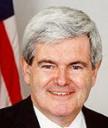Hoards of pundits and experts argue over what to call our current recession, which began as a crisis in finance. Arguments will continue because whether the recession is really a depression, cannot be determined until more time has passed.
When I first heard our current recession referred to as “Great Depression II” and “GP II,” I thought “How apt but unacceptable.” But today when I Goggled the phrase (in quotes), 56,000 hits appeared. Not surprisingly, the term “recession” appears 100 times more often. I will use the term recession and “deep recession“ even though history may eventually call it “Great Depression II.”
The typical comments on the web about the effects of the recession can best be described as stories of stress, pain, fear and suffering. Their missives are social tragedies because they are stories of parents struggling to find food for hungry children and of breadwinners getting laid off. They are stories of the inability to pay for medical treatment, which lays the pathway to early death, just like the third world.
Early Americans believed that pain, hunger, and suffering lead to strong character and close communities. But now contemporary Americans seem to view “suffering” as eating at home rather than going out; or as taking a vacation by car instead of jetting to the Caribbean.
 Time Magazine splashed “The New Frugality” as its cover story this week. The story claimed that the “Great Recession” is transforming how we spend, whom we trust, where we save and what we really value.” Time had just conducted a scientific, nationwide survey that found half of the public admitting to feeling hardship in general. Nearly a quarter had been unemployed not by choice. And, of course, we are spending less, at least on the nonessentials.
Time Magazine splashed “The New Frugality” as its cover story this week. The story claimed that the “Great Recession” is transforming how we spend, whom we trust, where we save and what we really value.” Time had just conducted a scientific, nationwide survey that found half of the public admitting to feeling hardship in general. Nearly a quarter had been unemployed not by choice. And, of course, we are spending less, at least on the nonessentials.
The most remarkable finding by the Time survey was that nearly two thirds “predict they’ll continue to spend less than they did before.” Even people earning more than $100,000 a year were talking about how they spent less, especially on luxury items.
On the basis of all of these types of findings, journalists tend to claim that the recession is affecting everyone. The truth is that the lifestyles of the super-wealthy remain basically unchanged, while the middle and poverty classes are struggling with day to day subsistence.
New national survey findings by the Pew Research Center Trends project were released as Luxury or Necessity? The Public Makes a U-Turn. Here is a synopsis of their discovery about how American adults are adapting to the economic depression:
· Over the past few decades, Americans have been increasingly viewing all home appliances as necessities rather than luxuries. All of a sudden in the past 4 months that trend has reversed. Now we are less likely to view microwaves, home air conditioning, dishwashers, and clothes dryers as necessities. Already in 4 months these appliances have lost 10 years worth of growth in their perception as necessities.
· Eight-in-ten adults have taken specific steps of one kind or another to economize during these bad times. Almost six-in-ten say they are shopping more in discount stores or are passing up name brands in favor of less expensive varieties
· One-in-five adults say they are following the example of first lady Michelle Obama and are making plans to plant a vegetable garden to save money on food
· Consumer reaction to the recession is being driven by specific personal economic hardships as well as by a more pervasive new creed of thrift that has taken hold both among those who’ve been personally affected and those who haven’t.
· Nearly half say they or another household member has lost more than 20% in a retirement account or other investments.
· About two-in-three American families have faced major economic problems such as loss of a job, major loss of investments, or trouble with mortgage payments in the past year.
· Children, young adults, women and the less affluent are the most likely to have been troubled or to face tragedy.
Taken as a whole these findings allow us to confirm that small shifts values have occurred within the American public, and perhaps around the world. That change consists of dropping or chipping away at materialistic, consumption values. 
For those like Tim Kasser, author of The High Price of Materialism, this must be good news. Although the Pew survey’s discovered a drop in the perceived meaning and value of major consumer items, the small drop may be finicky rather than long lasting, and superficial rather than deep.
Last month the Archbishop of Canterbury proclaimed that the recession had challenged the common belief that material possessions lead to contentment. On Easter Sunday, he preached for voluntary limits on “human acquisitiveness and sexual appetite.” I don’t know how sex slipped into hissermon, but let’s not get into psychoanalysis.
The important point he made is that contemporary society promotes harmful social values of excessive acquisition of a many nonessentials. These values have blinded us from observing the harm we do to the environment and our great insensitivity to the subsistence suffering of millions of people in American and around the world. This is a failing not just of Catholics, but also of people of every form of religion and non-religion.







